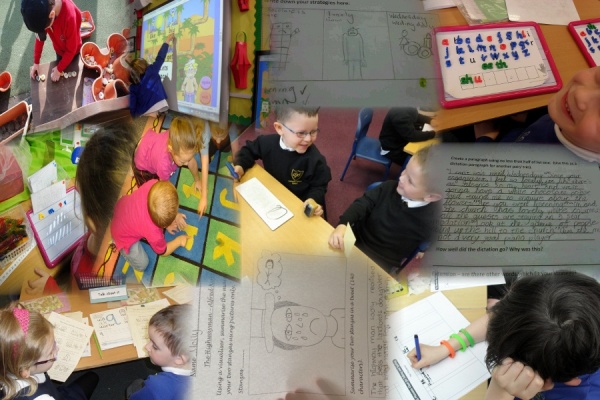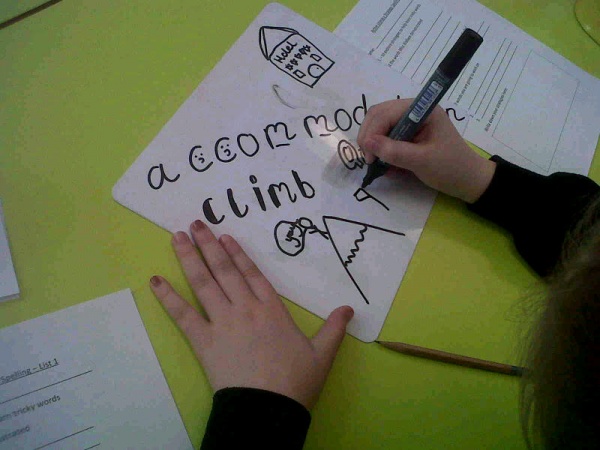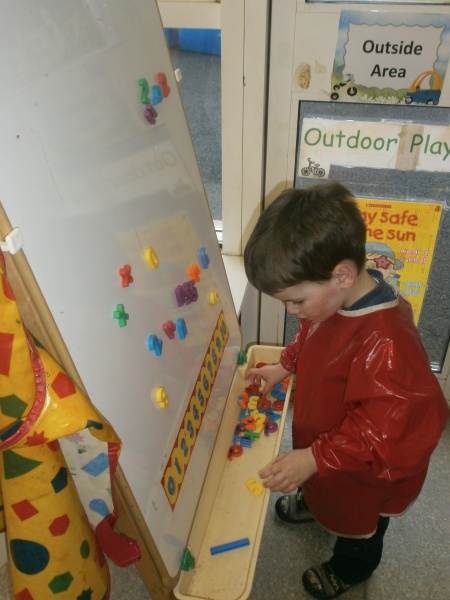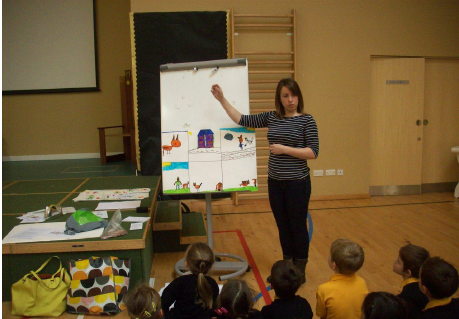 Over the past few months Lesley Haston, class teacher at Maddiston Primary School in Falkirk, has been working closely with her colleague Laura Fowlie on a Mairi Hedderwick-inspired project as part of the Scottish Book Trust Authors Live Teacher Champions Programme.
Over the past few months Lesley Haston, class teacher at Maddiston Primary School in Falkirk, has been working closely with her colleague Laura Fowlie on a Mairi Hedderwick-inspired project as part of the Scottish Book Trust Authors Live Teacher Champions Programme.
Lesley and Laura’s P2 pupils were inspired by the Katie Morag series.
The children started this project by watching the Author’s Live event with Katie Morag author, Mairi Hedderwick.
They discussed if any of the children had read these books before or seen the new TV programme. They read a different Katie Morag story every week.
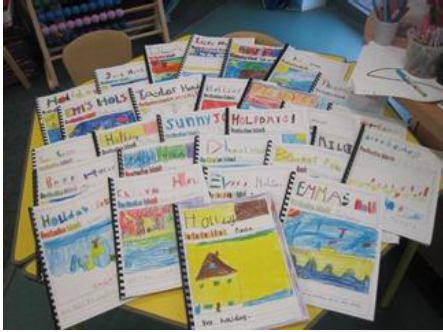 In groups the children wrote about the characters from Katie Morag using adjectives and we displayed these on the wall. They came up with words such as toerag, mischievous, cheeky, old, hardworking, etc
In groups the children wrote about the characters from Katie Morag using adjectives and we displayed these on the wall. They came up with words such as toerag, mischievous, cheeky, old, hardworking, etc
Exploring Scottish culture through play
The children had a Scottish themed play afternoon where they had opportunities to choose a variety of different activities. They could build the New Pier out of construction, they curled paper to make Alecina’s sheep’s coat, they wrote down the ingredients for haggis, played in the water with boats and ferries, listened to Scottish music, decorated thistles and created Plasticine Nessies.
Learning about picture book construction
They wanted the children to learn more about the production of picture books in preparation for them producing their own. They had a visit from illustrator and print maker Cate James; she explained the picture book making process and took the children through the storyboarding process. The children had a fantastic time and we have been using this idea in our language lessons, they are eager to create their own characters and story books.
Inspired by the island-living theme in the Katie Morag series, the main focus for the project was to produce a piece of extended writing in the form of a travel brochure. The children were split into seven co-operative groups named after a Commonwealth country. They worked together and found out lots of facts and information about their country from the national dress and food to famous landmarks and people. Once they had collated all this information, they used it to write their travel brochure. They had to come up with their own company name, prices and accommodation options on their island. The children worked extremely hard on their brochures and the results were brilliant. Everyone was asked to present their brochure to our Headteacher. Every pupil was awarded a Katie Morag book of their very own for their hard work.
To round off the project we held a ceilidh and invited along their grandparents. It was a massive success and the turnout for it was overwhelming. The children had practiced Scottish songs, poems and highland dances to entertain and involve their special guests. They had fantastic feedback and the children were so pleased at who came to see and hear them. The children also shared their extended writing project with their visitors and it was lovely to hear all the amazing comments.
Alongside all of this, the children were rehearsing for their forthcoming class assembly. They performed to parents and the whole school to tell them what we had been learning. Each child was given a part to play in our assembly such as sportsman, flag bearer, Scottish dancer, Katie Morag characters and narrators. They learned songs and poems to accompany the assembly and supplied costumes to enhance the performance.
Everyone thoroughly enjoyed all of the activities and opportunities that they have been given throughout the project. They have been so enthusiastic and produced some of their best work. The project has also been included in their Enterprise Award accreditation where we are hoping to achieve our Platinum award.








